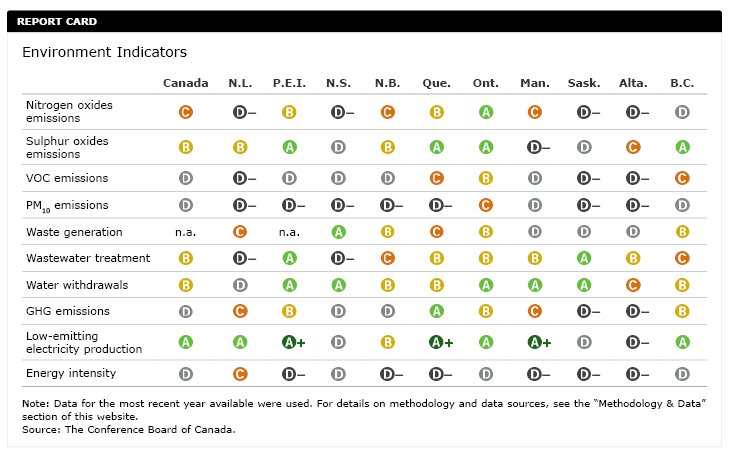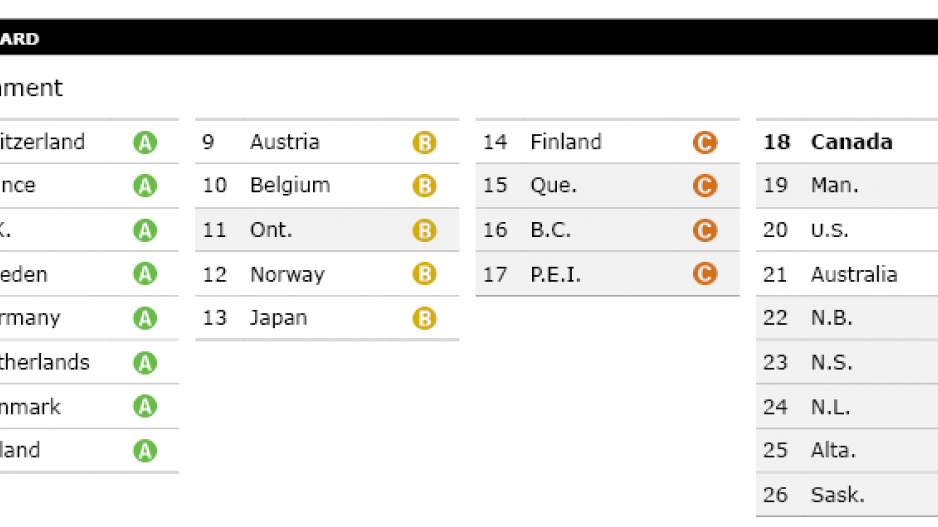A high level of air pollution per capita has weighed on British Columbia’s grade on the Conference Board of Canada’s environmental performance report card, released April 21.
Overall, B.C. received a grade of “C” on its environmental performance. The province came in 16th out of 26 jurisdictions, which included the 10 Canadian provinces and the United States, Australia, Japan and several countries across Europe. Canada as a whole earned a “D” and came in 14th out of the 16 countries studied, and the board said all of Canada’s provinces ranked poorly. Ontario was the highest-ranking province, earning a “B.”
“With climate change taking centre stage globally, there is finally consensus that economic growth pursued at the expense of the environment and at the expense of scarce and finite physical resources is clearly not sustainable,” the report said.
“Protecting the environment from further damage is not a problem for tomorrow, but a challenge for today. Without serious attention to environmental sustainability, Canada puts its society and its quality of life at risk.”
The province received a “D” on the indicator used to compare air pollution across regions. B.C. emits 11 kg per capita of nitrogen oxides and particulate matter. By comparison, Ontario emits 7 kg per capita. B.C. does score well on sulphur oxide emissions, earning an “A” in this category.

In the area of climate change, the province gets an “A” for low-emitting electricity production, and the Conference Board said this is because it generates most of its electricity from hydro stations. B.C. gets a “B” on greenhouse gas emission, as the province produces 14 tonnes of carbon dioxide per capita. By comparison, the highest-ranking province, Quebec, produces 10 tonnes per capita.
B.C. ranks well on waste management. According to the study, it has the second-best waste-generation rate in the country, earning a “B” grade in this area. B.C. generates 600 kg of waste per capita, per year, while Nova Scotia—the highest-ranking province—generates 400 kg. B.C. diverts about 37% of its waste away from landfills, compared with the national average of 25%.
Freshwater management is an area where the province ranks slightly better. B.C. earns a “B” in the area of per capital water withdrawal. However, the province gets a grade of “C” for wastewater treatment for “providing at least primary wastewater treatment to roughly 75% of its population,” the Conference Board said in a press release.
“B.C. does better than the national average, but these results show that we need to encourage even more sustainable economic activity and consumption,” said the board’s vice-president of public policy Louis Thériault.
@EmmaHampelBIV
Check out BIV’s podcast for the week of April 18, 2016:




